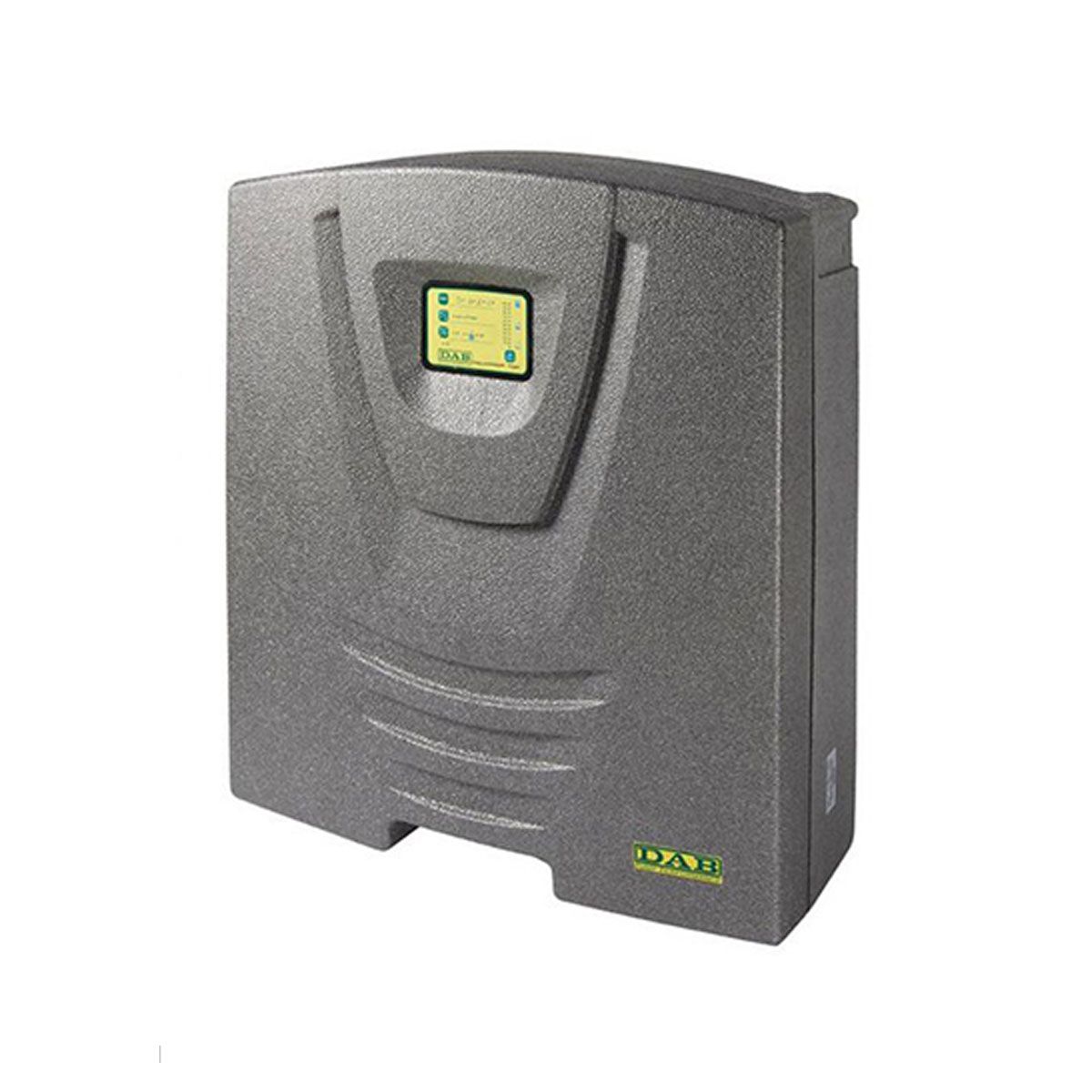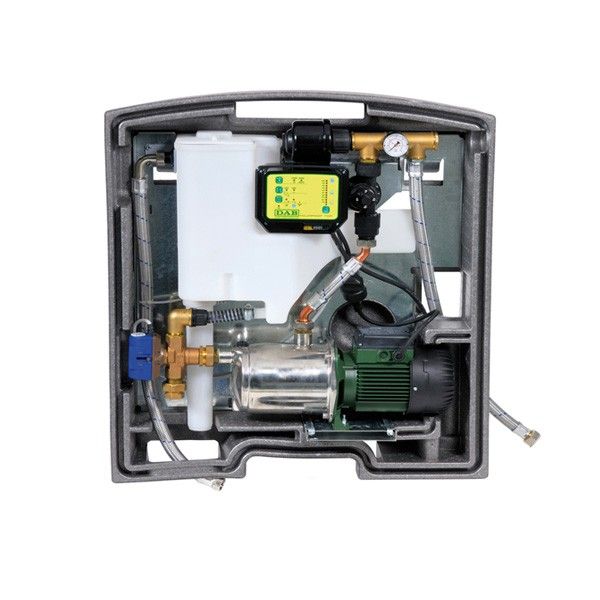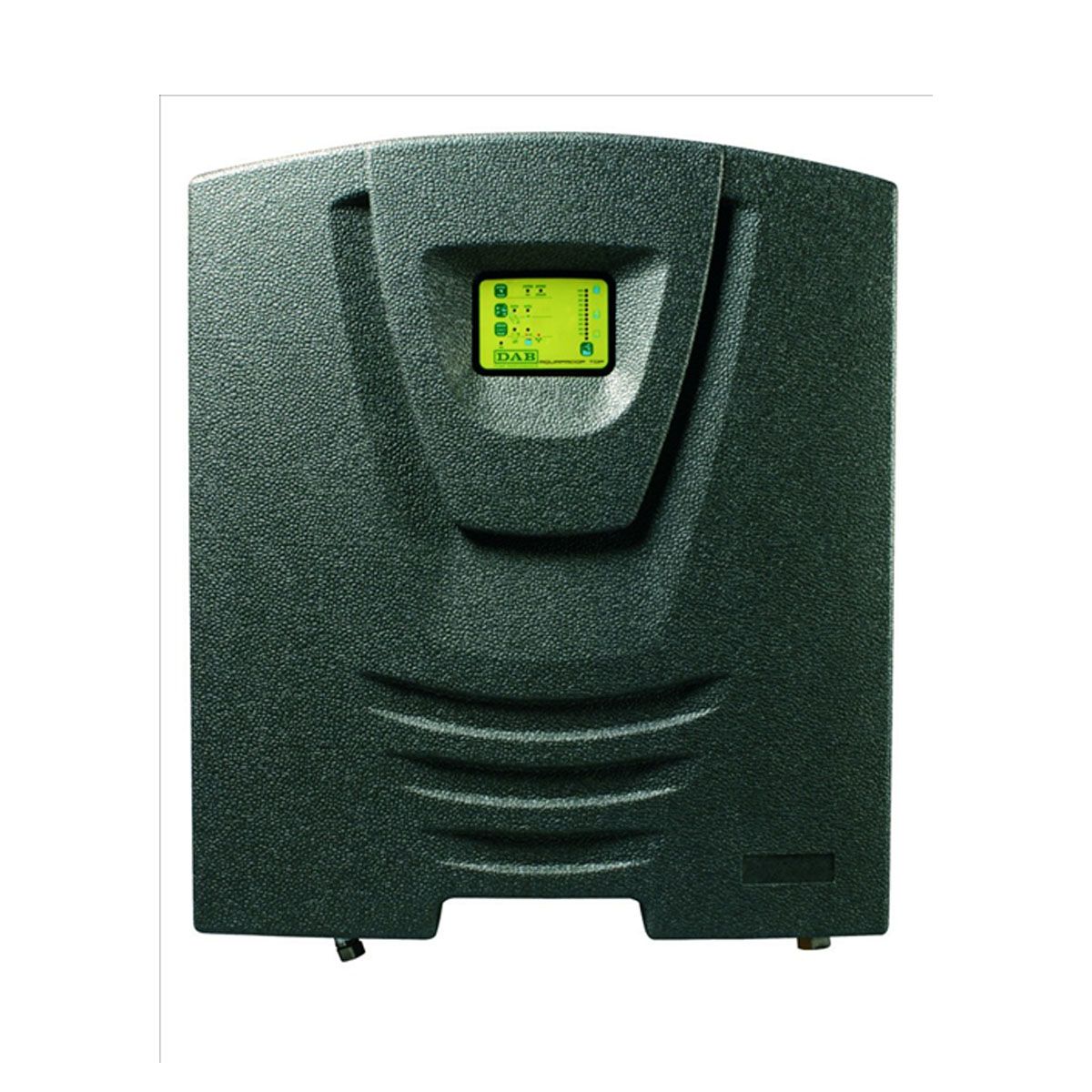






DAB Aquaprof Basic 30/50 Rainwater Pump
Product information
Specifications overview
Specifications
General information
Physical characteristics
Technical information
Functionalities
Types of water this pump can handle

DAB
DAB is one of the best-selling brands of water pumps for consumers as well as for professionals. These pumps adhere to a very high standard of quality, with each pump being tested manually by a staff member before it is put on the market. This is the only way DAB can guarantee that you obtain the absolute best. They have a solution regarding almost any situation, whether it involves an industrial application or simply spraying a garden. DAB's professional quality is also reflected in its consumer line. The DAB pumps we replace for people are usually over ten years old.

Automatic activation / deactivation
This pump switches on or off automatically if you open or close a water point that is connected to the pump. In many cases, this feature is a considerable advantage: for example, when irrigating a garden with a hand-held sprayer, or supplying a toilet or washing machine with rainwater. It is also useful if you want to increase the water pressure in your home. Unlike standard garden water pumps, water pressure pumps - because of the difference in pressure - 'notice' when one or more water points are opened or closed. This is how the pump knows that it needs to start or stop. Standard water pressure pumps (which are mounted to a tank) are equipped with a mechanical switch, and the more advanced ones have electronic switches. Both systems have advantages and disadvantages. The mechanical switch is reliable but can either not be set or it is difficult to do so, while the electronic version can be set but is dependent on electricity.

Dry-running protection
The name says it all: this pump is protected from running dry. Most pumps cannot, if at all, operate dry for long, which usually ends in the pump immediately burning out and/or seizing. For example, this could happen if the source has run dry and the pump can no longer draw water from it. Garden and booster pumps are particularly sensitive to running dry. Some borehole pumps and somewhat more advanced garden pumps are already equipped with built-in dry-running protection. Others can be easily fitted with a dry-running protection system: for example, with a separate one or with the DAB Control-D. This definitely guarantees that the garden or booster pump will not run dry.

Stainless steel / Inox
In some situations, stainless steel, which is also called Inox steel, can be very handy, and is prescribed in particular with regard to drinking water. Drinking water must remain pure and may not contain corrosive elements, which is the reason that stainless steel is used. Furthermore, a stainless steel pump is also resistant to lime, which tends to stick to surfaces, but is not able to do so with smooth, stainless steel surfaces. Cast iron is usually the counterpart of stainless steel, but these pumps are prone to corroding and are therefore used mainly for irrigation. A final advantage of stainless steel is that it is lighter than cast iron and is therefore easier to move.

Water tank
This pump is equipped with a water tank, which may be handy in a number of situations; for example, if the pump needs to supply water occasionally (drip watering). In that case, a pump without a tank will start pulsating (continuously switching on and off). A pump that is fitted with a tank can supply water from its tank so that the pump does not need to switch on immediately. Such pumps are very handy to use with, for instance, irrigation tubes and controlled irrigation, or for filling a toilet reservoir, which is usually also a gradual process. A second advantage of a tank is that it greatly reduces water hammer, the hydraulic shock - or ‘blows’ - that water pipes experience if a water supply point is opened hard and fast. Pumps that provide instant high pressure may increase instances of water hammer, and are therefore equipped with a (built-in) tank.

Water supply guaranteed
In some situations, it will be essential that water is always available. This may not always apply to irrigation, but it is definitely crucial when it involves supplying water for toilets, washing machines, or other appliances. In these situations, this pump is extremely suitable. It may be useful if you are not 100% certain whether the source contains sufficient water. The pump can offer a solution in the form of an automatic switch, which ensures water is always drawn, but instantly switches to the water mains system when the source has run dry.
Customer reviews
 DAB Aquaprof Basic 30/50 Rainwater Pump
DAB Aquaprof Basic 30/50 Rainwater Pump


































